Imagine controlling a computer with the power of your mind. Yes, it’s not only possible but already happening! Neurotech is revolutionizing how we interact with technology, offering possibilities that seem to come straight out of a sci-fi movie.
Why does this matter right now? Because this technology isn't just for the future; it’s already reshaping industries and impacting our daily lives subtly yet profoundly. Are you prepared to harness this invisible power?
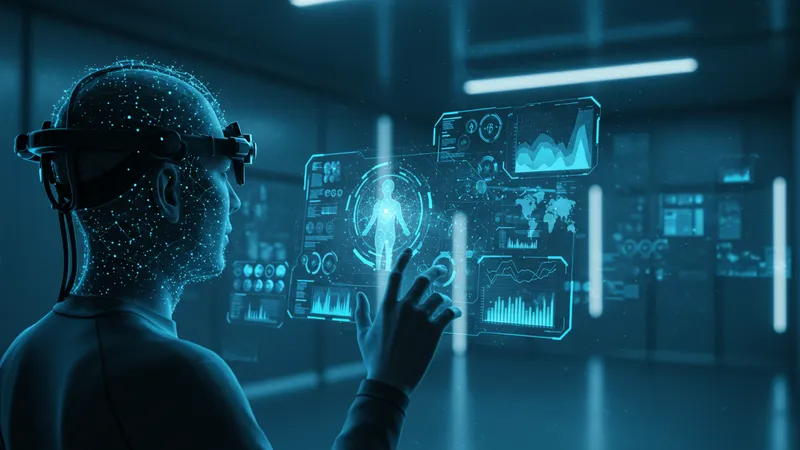
Remember the first time someone unlocked a smartphone using their fingerprint? Imagine now doing that with just a thought. This is the promise of neurotechnology. Companies like Neuralink are developing brain-machine interfaces that could soon replace our reliance on screens and keyboards altogether. It’s a shift so drastic, even insiders compare it to the leap from telegraphs to the Internet. But that’s not even the wildest part…
Consider the endless applications—hands-free VR navigation, enhanced meditation through real-time brainwave monitoring, or even the restoration of lost motor functions. The implications stretch beyond convenience and into life-changing realms. Early adopters are already experiencing unprecedented capabilities. What if we told you there's even more? But that’s not even the wildest part…
Could neurotechnology predict our decisions before we even make them? Experts once skeptical are now at the forefront of this revolutionary wave, unveiling astonishing research findings. Just when you think you’ve grasped the entirety of its potential, there's a surprising twist! What happens next shocked even the experts…
Neurotech isn’t just about controlling computers—it’s about creating a seamless integration between our minds and machines. This mind-computer symbiosis isn’t coming; it’s already here. Researchers have developed systems that can translate mental intention into physical action with stunning accuracy. The implications for individuals with mobility challenges are groundbreaking. Imagine operating a wheelchair, simply by thinking about your desired direction.
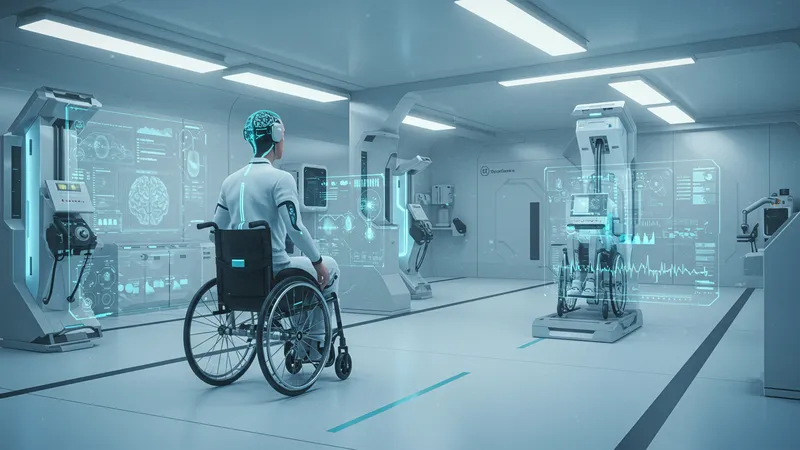
One might wonder how precise these systems are. Surprisingly, modern neurotech has achieved accuracy rates that surpass voice recognition software. In controlled environments, subjects have demonstrated a 90% accuracy in navigating digital interfaces using only their thoughts. This milestone is not only impressive—it sets the groundwork for scaling these technologies into everyday life. But there’s one more twist…
Beyond assisting those with disabilities, neurotech is breaking into the educational sphere, where it could redefine learning experiences for students worldwide. Envision a classroom where students could absorb information directly through cerebral stimulation, fostering deeper learning and retention. What you read next might change how you see this forever.
The potential of neurotech is unparalleled, but its journey has only just begun. Each advancement opens doors to capabilities previously confined to fantasy. Skeptics have become advocates as they witness the tangible progress in test cases. But with every leap forward, ethical considerations and privacy issues intensify—an ongoing dialogue that will shape the future of technology itself. What if we told you this is just the beginning?
Neurofeedback, a compelling offshoot of neurotech, is allowing users to optimize brain function with real-time data. Think of it as a gym for your brain, where the equipment is your cognitive activity tracked and decoded by sensors. Professional athletes and high-performing executives are turning to neurofeedback to enhance concentration and resilience.
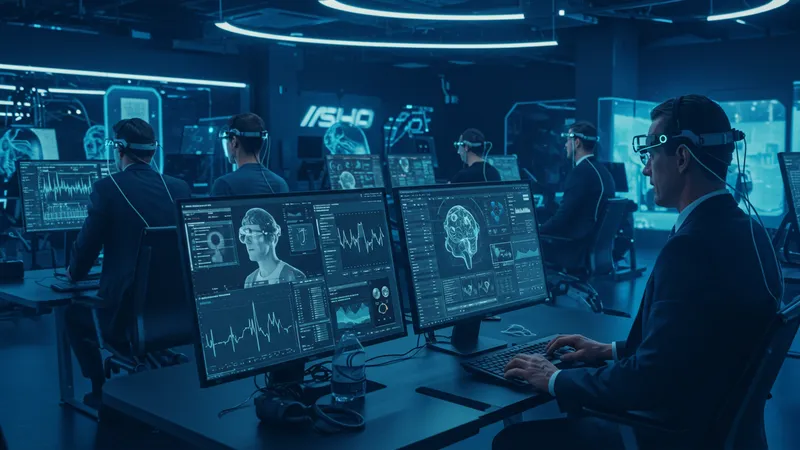
This isn't quack science—there’s robust evidence supporting its efficacy. In recent studies involving ADHD patients, neurofeedback training showed significant improvements in attention spans and cognitive performance equivalent to that of medication, but without the side effects. And for those wondering about the user-friendliness, fear not; systems like Emotiv and Muse have made it incredibly intuitive.
For the creative minds out there, neurofeedback is pushing the boundaries further. Artists and musicians are unlocking new realms of creativity by manipulating their mental states to induce deeper levels of inspiration. Imagine creating art that's driven not by the brush or instrument but by the mind itself. But, the best is yet to unfold…
However, with great power comes great responsibility. As neurofeedback becomes mainstream, questions about access and affordability arise. Will this create a neurological divide between those who can enhance their cognition and those left behind? What's next could redefine social dynamics and the very fabric of education and work. What you read next might change how you see this forever.
Imagine recovering from a stroke or spinal injury not through long years of therapy alone but by tapping into brain-power-driven rehabilitation tools. Neurotech is turning this vision into a reality, with devices that engage neuroplasticity, reshaping the neural pathways needed for recovery. This could redefine how we approach post-trauma therapy.
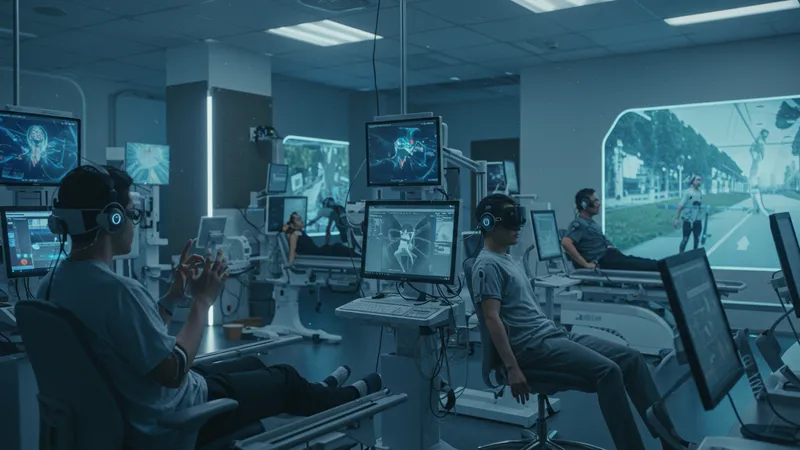
Neurotech-enabled rehabilitation centers are springing up globally, offering patients unprecedented recovery outcomes. By using brain-computer interfaces, patients can now engage with virtual environments that encourage motor function recovery in an interactive and motivating way. Early results show recovery rates improving by up to 50%, a feat previously thought impossible.
Why is this development critical now? With healthcare systems globally overstretched and populations aging, innovative solutions are more than just a luxury—they're a necessity. Neurotech offers a new hope, reducing recovery time and freeing up healthcare resources. But the most curious part is how people are adapting to this new norm.
Despite these advancements, integrating neurotech into mainstream healthcare faces hurdles, not least in terms of regulatory approvals and cost. There's also a lingering skepticism among traditional therapists wary of technological abetment. However, as success stories proliferate, acceptance is on the rise. Could this signify a new healthcare revolution? The most awe-inspiring aspects lie just beneath the surface…
Imagine machines that don't just work for you but understand your emotional states. Neurotechnology is enabling exactly that—programming machines with emotional intelligence. With sensors that read our brain's emotional cues, businesses are developing tools that adjust workflows based on user moods, optimizing productivity and satisfaction.
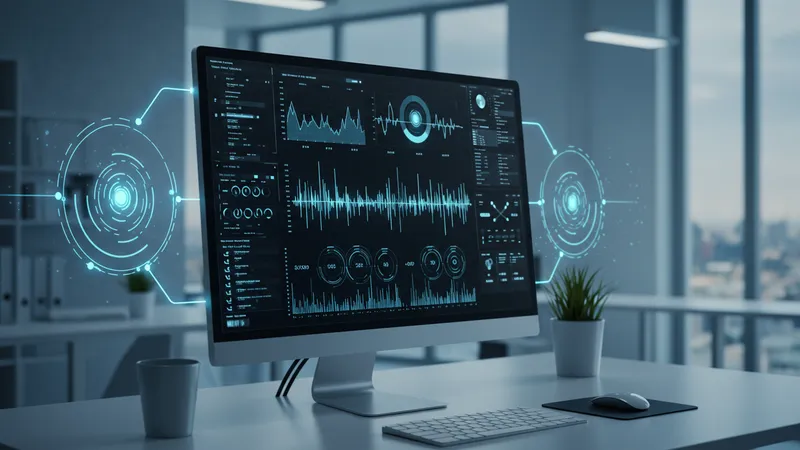
Consider a work environment where your computer moderates its workload intensity in response to your stress levels, improving both well-being and output. These machines could enable us to tackle cognitive tasks at peak efficiency and identify burnout before it manifests physically. It's the next frontier in workplace wellness.
Beyond the workplace, neuro-emotional devices are being explored in gaming and entertainment. Imagine a video game that alters its storyline based on your real-time emotional responses, creating a personalized narrative experience unlike anything before. But what happens when this tech becomes ubiquitous?
The promises are appealing, but implications need scrutiny. Could emotional AI interfere with personal agency, or compromise privacy by constantly monitoring our emotional states? The journey from intellectual excitement to everyday reliance comes with ethical conundrums. The next twist could redefine what we thought possible.
What if your favorite online store knew what you wanted, even before you typed it into the search bar? Neurotech is refined enough to integrate with marketing strategies, potentially reading user intentions and suggesting products in real-time. It's a thrilling, yet potentially eerie prospect.
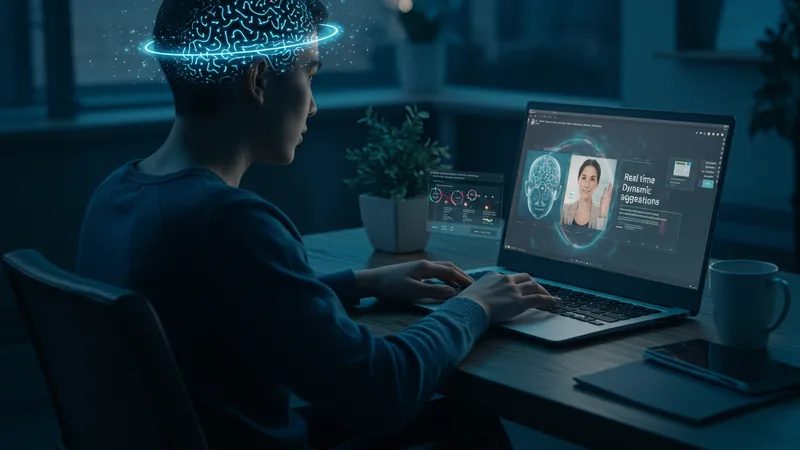
For advertisers, the introduction of neuro-aware technology offers an unprecedented edge. Ads could adapt to a viewer's mood, increasing engagement manifolds. Companies already employing neural technology in advertising see conversions skyrocket, a testament to its efficacy.
But such predictive power raises questions. As ads become hyper-personalized, where does consumer choice end and external control begin? The balance between offering tailored options and infringing on personal freedom must be struck with precision. This is where the story takes an unexpected turn.
What are the long-term implications for privacy and personal autonomy in a world where our desires are preemptively catered to? With every advantage comes a cautionary note, and understanding this balance will be pivotal to neurotech’s role in commerce. What you read next might change how you see this forever.
In an age where data reigns supreme, could neurotech be the key to unbreachable security? Researchers are exploring neural signatures—a unique brainwave pattern personalized to each individual—as the new frontier of cybersecurity, potentially replacing passwords.
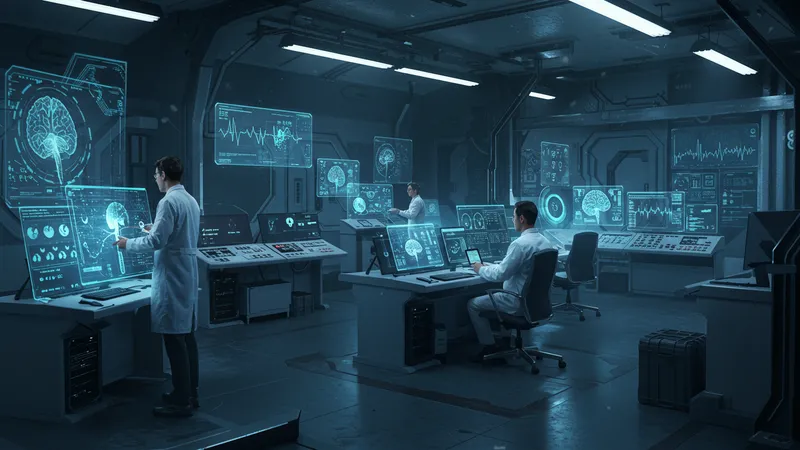
Organizations dealing with sensitive information—like financial institutions or defense departments—could transform security measures by demand authentication via neural approval. The potential for foolproof identification systems could spell the end of forgotten passwords or compromised access.
However, as with all advancements, this technology ushers in both opportunities and challenges. The risk of neural data being hacked or manipulated presents a vastly different threat landscape. How do we ensure such high-stake information remains secure and private?
This conundrum is the crossroads at which neurotech innovation stands, a point echoed by thought leaders around the world. New paradigms of personal security and privacy will emerge, demanding both technological and ethical fortitude. But the story doesn’t end here—there's a hidden facet yet to be unveiled.
Classrooms are rapidly evolving, and neurotech is at the helm, offering transformative insights into student engagement and learning efficacy. By monitoring cognitive load and motivation, educators can tailor their methods to suit individual student needs in real-time.
Neuro-surveys can determine which teaching styles resonate best, offering a data-centric approach to education that fosters active learning environments. Schools adopting neuro-enhanced teaching methodologies report marked improvements in student outcomes—an entirely new educational renaissance.
Yet, with this innovation comes debate. Critics argue the inherent intrusion neurotech brings to personal learning environments, questioning the scope and limits of such data collection. The balance between enriched learning and encroachment of privacy is delicate.
But what if neurotech isn't just a tool for measuring brain activity but a catalyst for developing emotional intelligence among students? The fusion of cognitive and emotional insights could herald unprecedented academic and personal growth. Yet again, this is merely scratching the surface of what could be paradigm-shifting possibilities.
The entertainment industry already witnesses rapid evolution, but neurotech is primed to set it ablaze. Imagine cinemas or streaming platforms customizing content based on your neural responses, offering an experience that feels as if the story interacts with you personally.
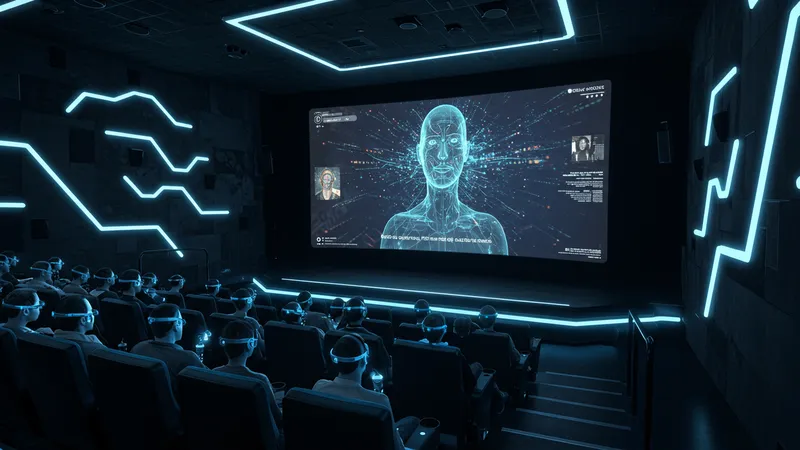
From adaptive soundscapes in music to dynamically altering plotlines in films, the personalization of entertainment content is unprecedented. Early adopters report an overwhelmingly immersive experience, drawing them deeper into narratives than ever before.
However, the power to manipulate consumer experiences lies heavy with the production giants. At what point does personalization infringe upon artistic intent, or monopolize the viewer's control over their experience? The balance between custom and creativity is critical.
As this technology becomes more pervasive, understanding its potential to both enhance and exploit is essential. The industry is bracing for an era where entertainment doesn’t just cater to us—it knows us. Yet, the future's real intrigue lies in the myriad paths we haven't yet traveled.
The rise of neurotech comes not only with technological challenges but with a vast landscape of ethical questions that demand urgent answers. As these technologies become further integrated into society, concerns about consent, privacy, and the potential for misuse are rising.

Advocates argue for transparent policies and stringent regulatory frameworks to ensure these potent tools are used responsibly and equitably. Public dialogue is crucial as society unfolds this era of neuro-enhanced existence, confronting dilemmas not seen since the dawn of the digital age.
Even now, debates rage about the potential for neuro-manipulation—will neural implants be compulsory for certain professions or education standards? The slippery slope into autonomy loss or enforced compliance cannot be ignored.
These conversations will shape the neural network landscapes of tomorrow, setting the path for how technology interacts with our minds. As we peel back the layers, it becomes clear that the story of neurotech is one not of mere innovation but of a profound shift in what it means to be human. There's more to this evolving narrative than meets the eye.
The landscape of neurotechnology is vast, unpredictable, and undeniably thrilling. The hands-free control it promises is more than a leap in tech; it's a journey into new realms of human potential. Share this article, explore the possibilities, and transcend the limits—after all, the next frontier is already here, and it waits for you.